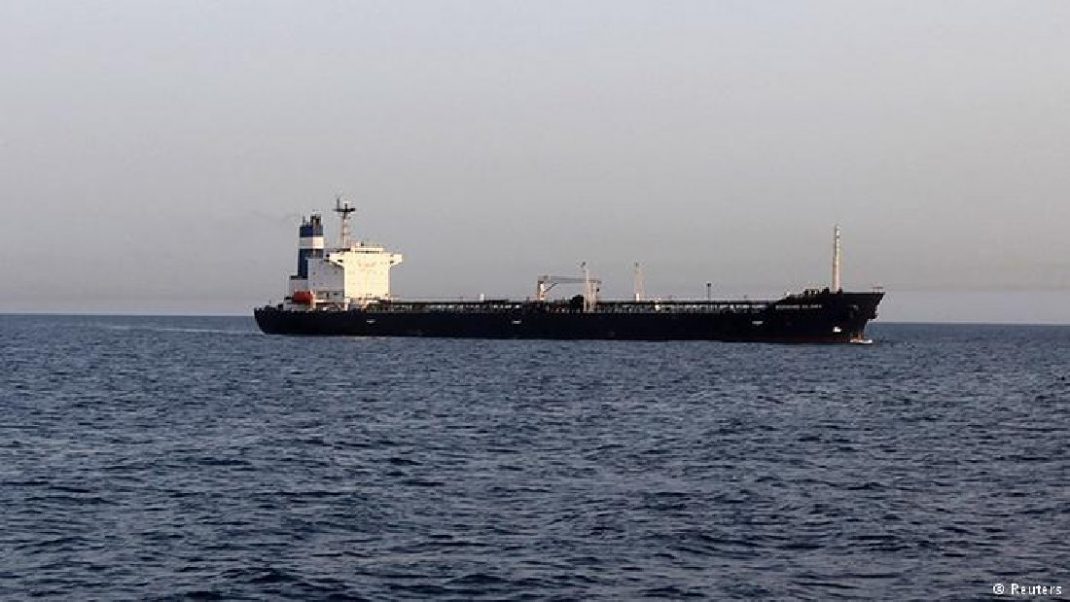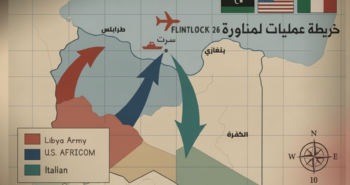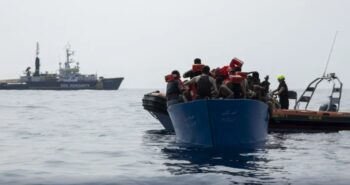The Sentry

Executive Summary
Fuel smuggling in Libya has escalated into a major national crisis, costing the country about $6.7 billion per year. Although fuel smuggling has long been one of the North African nation’s most persistent illicit activities, a few key Libyan actors—with foreign assistance—have significantly intensified the exploitation of Libya’s bloated fuel subsidy program, whose dollar size surged to unprecedented levels from 2022 to 2024.
The consequences both within and outside Libya have been numerous, including inflation and the further consolidation of power by the Haftar family in Benghazi and, to a lesser extent, the Dabaiba family in Tripoli, as well as the fact that foreign players—including Russian armed units and Sudan’s Rapid Support Forces (RSF)—have benefited from the country’s fuel crisis.
Despite steady oil production and favorable market conditions throughout 2023 and most of 2024, the Central Bank of Libya (CBL) reported a hard currency deficit two years in a row. The fiscal imbalance stems in large part from Libya’s swapping of crude output for fuel imports, with more than half of the imported fuel siphoned off by criminal networks.
Libya’s outsized fuel subsidy program reduces the amount of crude that Libya can sell for dollars, depriving the CBL of the hard currency it needs for food, medicine, and other essential imports. By reducing the National Oil Corporation’s (NOC) income, Libya’s excessive fuel imports have also made paying government salaries more difficult. Thus, the rise in smuggling activities has contributed to the Libyan dinar’s depreciation on the black market and added to consumer price inflation, hurting households across the country.
Plus, as corrupt officials increasingly dominate the fuel subsidy program, legitimate consumers face fuel shortages, risks of electricity outages, and higher prices at the pump. As a result of the takeover by illicit networks, the fuel subsidy program has become less accessible to those it’s meant to serve, exacerbating the economic strain on Libyan households.
Smuggling not only deprives the CBL of crucial dollar revenues, it also undermines the integrity of the NOC, whose hydrocarbon exports account for virtually all of Libya’s income. Years of gigantic illicit profits derived from the fuel scheme have enabled some corrupt networks not only to organize themselves better but also to expand their influence—across the NOC and other formal institutions alike—often causing lasting damage. Meanwhile, the surge in fuel smuggling means that a larger share of Libya’s oil wealth is stolen, hurting the legitimate economy and worsening hardships for ordinary citizens.
Saddam Haftar, the primary force behind the surge in fuel smuggling, has reshaped the sector to be more coordinated. His influence over the NOC, particularly since 2022, as well as his increasingly integrated armed factions and expanded maritime capacity, has industrialized previously scattered activities.
The Haftar coalition’s armed dominance over most of eastern Libya and significant parts of the south has facilitated larger fuel flows into Mediterranean destinations by sea and sub-Saharan Africa by land, spurring even politically unaligned smuggling networks in Libya’s northwest to adapt to the growth.
Illicit operators in the northwestern cities Zawiyah and Misrata now channel increased fuel imports southward into Haftar-held areas, from which they are in turn funneled into Chad, Niger, and Sudan. Saddam Haftar’s emergence as the sector’s foremost leader has helped precipitate the professionalization of smuggling operations nationwide and the strengthening of illicit networks even in areas outside his direct control.
The effects of Libya’s fuel crisis stretch beyond its borders. EU states such as Malta and Italy are affected by the infiltration of illegally diverted fuel from Libya into their economies. Russia benefits in several ways, with Libya’s fuel smuggling enabling Moscow’s military activities in sub-Saharan Africa. The illicit flow of fuel from southern Libya to Sudan’s RSF also facilitates the genocidal war waged in Darfur, Sudan.
Despite a series of pledges from Libyan leaders to lift or reform the fuel subsidies, the swift growth in smuggling volumes in 2022-2024 would not have been possible without their tacit acceptance. In fact, some of Libya’s leaders personally profited from this expanding illicit trade, which has triggered wide-ranging macroeconomic and political implications.
All in all, the 2022-2024 surge in fuel smuggling has cost the Libyan population about $20 billion—an alarming figure that demands decisive international action. Libyans need support in safeguarding their country’s primary revenue source, the NOC, which has been instrumentalized and made fragile by powerful figures—based in Tripoli and Benghazi alike—who lack any legitimate authority over the NOC’s internal affairs.
These politicians and security leaders who claim to serve the public and fight organized crime have, in fact, acted as the chief architects of Libya’s fuel smuggling industry, often with backing from foreign states. Still in office, the same rulers will now likely use their vast ill-gotten wealth to entrench themselves even further. Without robust international intervention to hold culprits responsible, actors within and outside the NOC will continue undermining Libya’s economic viability.
_____________________




